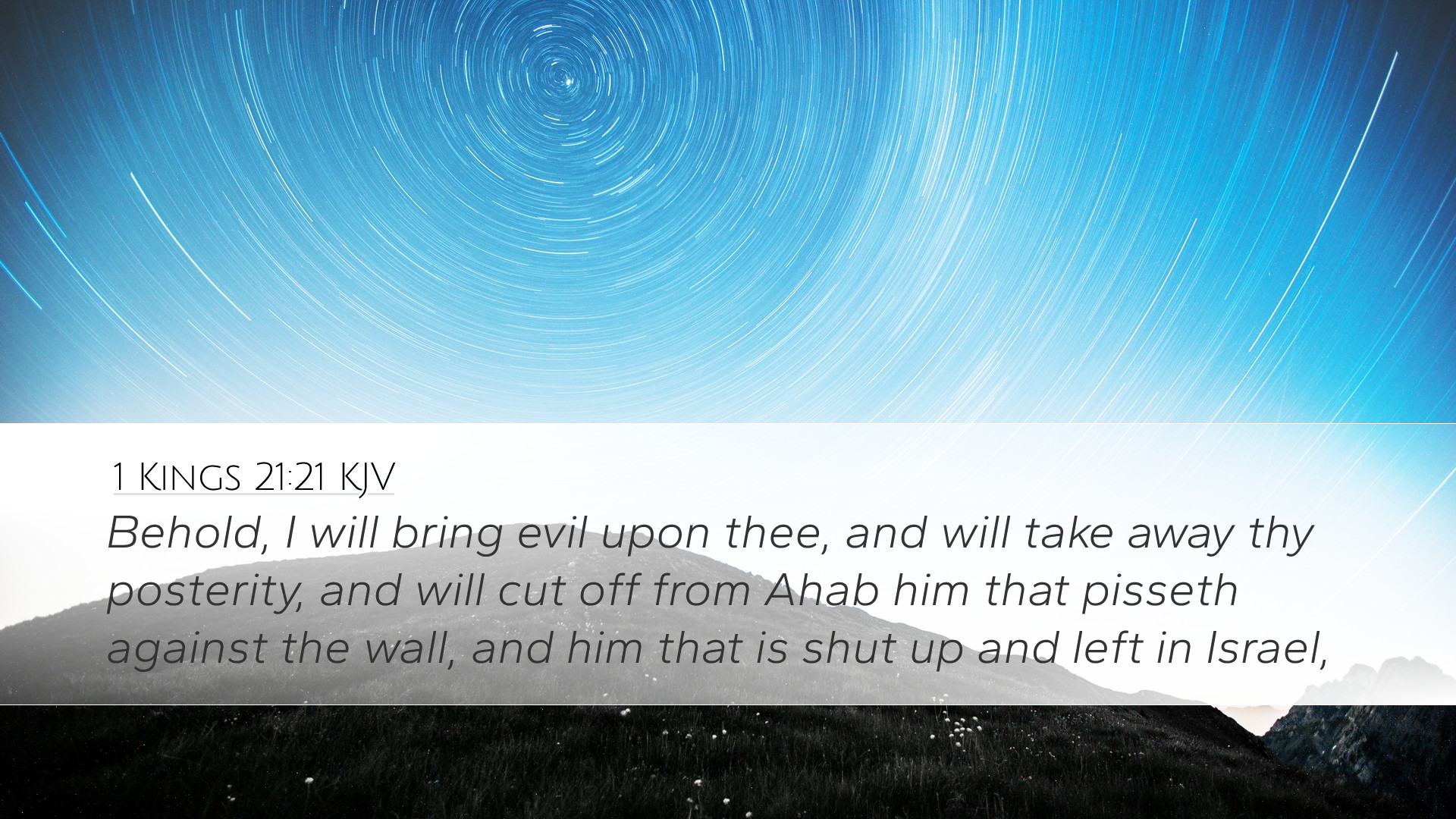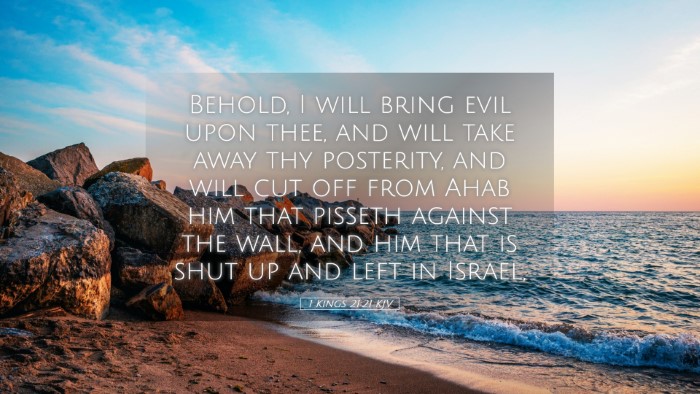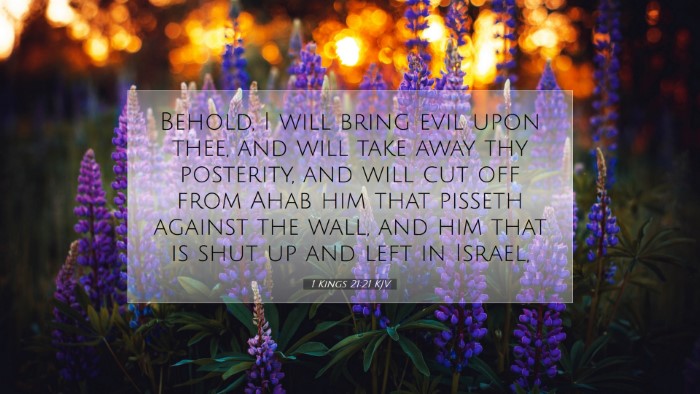Commentary on 1 Kings 21:21
Verse: 1 Kings 21:21 - "Behold, I will bring evil upon thee, and will take away thy posterity, and will cut off from Ahab him that pisseth against the wall, and him that is shut up and left in Israel."
Introduction
This verse occurs in a significant narrative concerning King Ahab of Israel and his infamous dealings with Naboth regarding the vineyard. The verse shows the gravity of Ahab's sins and the consequences thereof. It serves as a poignant reminder of divine justice and the severe repercussions that follow unrepentant wickedness.
Contextual Analysis
To grasp the implications of 1 Kings 21:21, one must consider the wider context of Ahab’s reign. Ahab's reign was notably marked by sin, including idolatry and injustice. His encounter with Naboth, which involved deceit, murder, and coveting, ultimately led to God's judgment as proclaimed by the prophet Elijah.
Insights from Public Domain Commentaries
Matthew Henry's Commentary
Henry emphasizes the notion of divine retribution that weaves throughout this passage. He notes that God's judgment is directed towards Ahab for his sins, particularly the grievous acts of murder and theft. Henry states:
"God basely neglected the public good in a private interest, and thereby brought a curse upon his house."
This assertion underlines a major theme in Henry’s commentary: the idea that political and personal actions have spiritual consequences. Ahab’s act against Naboth was not merely a personal transgression; it had implications that affected the entire nation of Israel.
Albert Barnes' Notes on the Bible
Barnes expands on the concept of "cutting off" which signifies extreme judgment from God. He analyzes the phrase "him that pisseth against the wall," highlighting that it refers to all male descendants. Barnes argues that:
"The term is an expression of contempt for the offspring, showing that they would be cut off not just physically but socially and spiritually."
This perspective underscores God’s intent to eradicate not just Ahab’s direct lineage but any legacy of his evil actions, showcasing how deeply sin can tarnish one's heritage and future.
Adam Clarke's Commentary
Clarke delves into the historical and cultural implications of the text. He notes that the promise of evil coming upon Ahab indicates a significant historical marker where God's dealings with Israel starkly manifested His displeasure with sin. He asserts:
"Ahab's grievous actions invoke the Lord’s swift and profound response, demonstrating that divine justice is inevitable."
Clarke's analysis implies that God's justice is not arbitrary; rather, it is a deliberative response to the actions of His people, highlighting the seriousness with which God approaches sin.
Theological Implications
When we examine 1 Kings 21:21, several theological implications arise:
- God’s Sovereignty: This passage reflects that God is ultimately in control and orchestrates the course of history, particularly in the context of righteousness and justice.
- The Nature of Sin: Ahab's sin demonstrates that disobedience to God can lead to dire consequences, revealing the severity of divine law and the importance of holiness.
- Divine Judgment: The assured judgment upon Ahab has implications for the community; it serves as a warning to others against similar acts of injustice and rebellion.
Application for Pastoral Ministry
This verse serves as a crucial reminder for pastors and church leaders who guide congregations through the complexities of sin and grace. The basis of Ahab’s transgression serves to highlight the need for strong ethical leadership and a commitment to justice:
- Encouraging Accountability: Leaders must foster environments where accountability in actions is emphasized, ensuring that they lead by example in integrity.
- Communicating the Weight of Sin: The narrative encourages open discussions on the ramifications of sin, helping communities understand the importance of repentance and holiness.
- Affirming God’s Grace: While judgment is a theme, the overarching message should always point back to God’s grace and the opportunity for redemption through sincere repentance.
Conclusion
1 Kings 21:21 offers profound insights into the nature of God's judgment upon wickedness, especially in the context of socio-political leadership. With contributions from respected commentators, the verse not only highlights Ahab's failures but also serves as a timeless admonition against sin and a reminder of God’s sovereignty in administering justice. As pastors, students, and scholars reflect on this scripture, it urges them to foster righteous living and uphold principles of justice within their ministries and communities.


